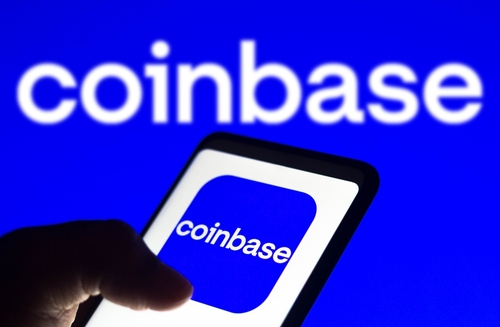[ad_1]

Key Takeaways
Coinbase went public in April 2021, close to the top of the crypto market and near a $100 billion valuation
Despite a stout 141% rise thus far this year, it remains 77% off its IPO price
It has underperformed Bitcoin significantly
Regulatory issues cloud picture but hope remains that it can establish itself as largest fiat on-boarder
Coinbase stock is having a bumper year. The cryptocurrency exchange is up 141% year-to-date, far exceeding both Bitcoin and the Nasdaq, which have risen 77% and 31% respectively. This year-to-date gain comes despite a 24% fall over the last month.
And yet, despite the boisterous performance thus far this year, for those who invested in Coinbase a couple of years ago, it has been nothing but pain. The stock remains 76% below its IPO price from April 2021. At one point flirting with a $100 billion valuation, today it has a market cap of $19 billion.
The travails of the stock sum up the struggles in the wider cryptocurrency industry over the last eighteen months. Booming during the pandemic as stimulus cheques flowed and interest rates were non-existent, the music stopped last year once inflation began to spiral. Central banks were forced to hike interest rates, with the US Federal Reserve particularly aggressive. Today, rates are north of 5%, with risk assets pulling back severely last year as a result.
Trouble within crypto
In addition to the harsh macro climate, the crypto sector has done itself no favours. There have been several startling collapses which triggered mass contagion across the industry. The first was the death spiral of the UST stablecoin, taking down the entire Terra ecosystem and leading to a host of bankruptcies, including hedge fund Three Arrows Capital.
Crypto lender Celsius were among the other firms to follow, but it was the demise of FTX, the Bahamas-based exchange, that was the cherry on top. Bitcoin fell to $15,500 and the entire industry was in disarray. For Coinbase shareholders, despite the evaporation of a key competitor, the stock price suffered further, such was the damage to the ecosystem.
In retrospect, Coinbase went public right at the top, walking into an oncoming storm. Marking their IPO on a Bitcoin price chart below shows how poignant the timing was.
Yet even with bad timing, it has underperformed Bitcoin. While the two assets have been highly correlated, since the start of 2022 (roughly coinciding with the start of the crypto bear market), Coinbase has headed lower than the world’s biggest crypto.
Regulation
A big part of the issue is regulation. US lawmakers are cracking down on the cryptocurrency industry, and Coinbase is squarely in the line of fire. The exchange was sued in June for securities violations.
“(The SEC) came back to us, and they said . . . we believe every asset other than bitcoin is a security,” Brian Armstrong, CEO of Coinbase, said. “And, we said, well how are you coming to that conclusion, because that’s not our interpretation of the law. And they said, we’re not going to explain it to you, you need to delist every asset other than Bitcoin.”
“We really didn’t have a choice at that point, delisting every asset other than bitcoin, which by the way is not what the law says, would have essentially meant the end of the crypto industry in the US,” Armstrong continued. “It kind of made it an easy choice . . . let’s go to court and find out what the court says.”
The court case will be pivotal not only for the future of Coinbase’s business, but the entire crypto industry in the US. Yet despite the regulatory troubles, Coinbase is arguably the most reputable major exchange. Its legal trouble centres on securities violations, a far cry from the laundry list of accusations against the biggest exchange, Binance. Changpeng Zhao’s company faces charges of trading against customers, manipulating volume, circumventing AML and KYC laws, and more.
Institutional on-boarder
Additionally, many of the spot ETF applications which have been lodged with the SEC recently outline Coinbase as a proposed custodian. This, in addition to its cleaner reputation as mentioned above, highlights an angle that Coinbase could exploit if it does manage to fight its corner in court successfully: institutional money.
If or when institutional capital is allowed to flow freely into crypto, Coinbase – at least right now – appears well placed to vacuum up all that volume and offer as a vital on-boarding into the on-chain world for all this trad-fi capital.
It is difficult to forecast how the legal case will play out, and in any case, it will not be resolved quickly. On the positive side for COIN investors, last month’s ruling in the landmark Ripple security case provided hope, even if it was only a partial win, with the result also pushed back against by the SEC.
Whatever happens with that case, COIN investors will hope that the future brings more positive results than the past, as the stock has been a disaster for most. Perhaps the best way to sum it up is this: had investors put their money in FTX, and if FTX creditors end up securing 24 cents on the dollar or greater, they would be better off than Coinbase investors. Obviously, that is a silly comparison and assumes Coinbase trades flat from here (not to mention the fact that bankruptcy proceedings will take years), but it does indicate quite how badly Coinbase stock has performed since those dizzying days of 2021.
[ad_2]
Source link



